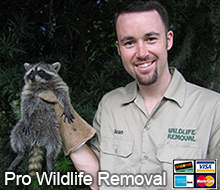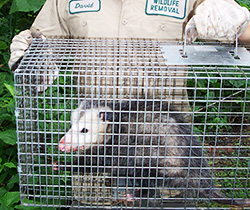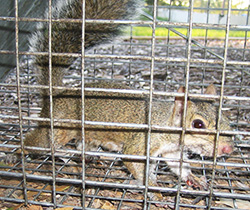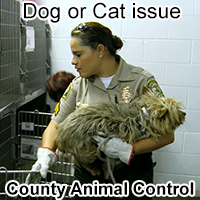- cheyenne@aaanimalcontrol.com
Call 24/7 for a free quote:
307-274-4615
Cheyenne Wildlife Control / Wyoming Animal Removal
Cheyenne Wildlife Removal - Animal Pest Control in Cheyenne, WY. Call us: 307-274-4615

- Noises in Your Attic?
- Unwanted Wildlife?
- Bird or Bat Problem?
- Rodent Infestation?
- We Can Solve It!
Please, no calls about DOG or CAT problems. Call animal services: (307) 632-6655.

 Cheyenne Wildlife Removal provides professional wildlife control for both residential & commercial customers in the
city of Cheyenne in Wyoming. We offer custom animal control solutions for almost any type of wildlife problem, whether
it be the noises of squirrels running through the attic, a colony of bats living in a building, animals digging in your yard, or
the destructive behavior of a raccoon or other critter, we have the experience and the tools to quickly and professionally
solve your problem. For a consultation and price quote, give us a call at 307-274-4615
Cheyenne Wildlife Removal provides professional wildlife control for both residential & commercial customers in the
city of Cheyenne in Wyoming. We offer custom animal control solutions for almost any type of wildlife problem, whether
it be the noises of squirrels running through the attic, a colony of bats living in a building, animals digging in your yard, or
the destructive behavior of a raccoon or other critter, we have the experience and the tools to quickly and professionally
solve your problem. For a consultation and price quote, give us a call at 307-274-4615
Click here to check our prices updated for year 2024. There are many Cheyenne pest control companies for animals out there, but not all of them are licensed and insured professionals. Make sure that you hire a competent expert for your Cheyenne exterminator of wildlife. At Cheyenne Wildlife Removal, we will be courteous and friendly and take the time to answer your questions. Give our Cheyenne trappers at Cheyenne Wildlife Removal a call, and we will listen to your problem, and make an appointment to perform an inspection. Feel free to email us at cheyenne@aaanimalcontrol.com
 Resources for free wildlife removal in Cheyenne
Resources for free wildlife removal in Cheyenne
If you can't afford our pro wildlife work, you can try these agencies for free wildlife removal:
Laramie County Animal Services: (307) 632-6655
Wyoming Wildlife Commission: 307-777-4600
Cheyenne Police Department: 307-637-6500
These agencies will only help with certain types of wildlife problems, and they are not always consistent. If you want a high quality of
help done right, call our company.
 Wyoming is full of wildlife, including snakes, squirrels, raccoons, skunks, opossums, and more. Wildlife removal is a complex field. I
recommend professional Cheyenne wildlife control services if you want to solve a critter problem legally and correctly. For example, we specialize in animals in the attic, which have broken into the house
and almost always have a nest of baby animals. It is necessary to perform correct
preventative repairs to keep pest animals a out of your house for good. We perform full building inspection, do the
the repairs and we also offer attic decontamination if necessary. Rats and mice love to live in attics, and can chew wires or leave droppings. Some Cheyenne animals
frequently enter homes, and correct removal is not a simple task.
Wyoming is full of wildlife, including snakes, squirrels, raccoons, skunks, opossums, and more. Wildlife removal is a complex field. I
recommend professional Cheyenne wildlife control services if you want to solve a critter problem legally and correctly. For example, we specialize in animals in the attic, which have broken into the house
and almost always have a nest of baby animals. It is necessary to perform correct
preventative repairs to keep pest animals a out of your house for good. We perform full building inspection, do the
the repairs and we also offer attic decontamination if necessary. Rats and mice love to live in attics, and can chew wires or leave droppings. Some Cheyenne animals
frequently enter homes, and correct removal is not a simple task.
 DOG or CAT: If you need assistance with a domestic animal, such as a dog or a cat, you need to call your local
Laramie County Animal Control
for assistance. They can help you out with issues such as stray dogs, stray cats, vaccinations, licenses,
pet adoption, lost pets, and more. If you have a wildlife problem, you can try calling the Laramie County animal control, and see what they have to
say, but they will certainly not help you with a complex wildlife problem such as critters in your attic. They are a free government agency that
helps with dog and cat issues only.
DOG or CAT: If you need assistance with a domestic animal, such as a dog or a cat, you need to call your local
Laramie County Animal Control
for assistance. They can help you out with issues such as stray dogs, stray cats, vaccinations, licenses,
pet adoption, lost pets, and more. If you have a wildlife problem, you can try calling the Laramie County animal control, and see what they have to
say, but they will certainly not help you with a complex wildlife problem such as critters in your attic. They are a free government agency that
helps with dog and cat issues only.
Laramie County Animal Services: (307) 632-6655
Cheyenne Wildlife Tip:
Do Relocated Mice Survive?
There are a growing number of people who are capturing mice and then relocating them to another area instead of killing them. Relocating them may seem more humane than killing them, but is it an assurance that they will thrive in their new home? Let us look at some of the factors that determine whether or not the mice will survive.
Food
This is the single most important factor that influences the survival of any living thing. Mice are known to be very heavy eaters -compared to their size. The reason why mice thrive in your house is because there is plenty of food. If there is little food in the house, it could be that your house gives them easy access to a source of food outside the house. The important thing is that the mice know exactly where they will get the food from. However, when you relocate a mouse, you release it to a new environment, an environment where it has to start looking for new places to find food. The problem with not knowing where to look is that they could die even before they found the source of their first meal. This narrows the chances of survival for relocated mice.
Security
Ever noted how easy it is to run away from danger when you know the landscape well? That is the same case with mice. They can be able to run away from danger once they have gotten used to the new landscape. However, predators do not wait for the mice to get acquainted with their new home, danger strikes at any time, even a few minutes after you have set the mice free. This means that they cannot run away from their predators effectively since they have not found any hiding spots yet.
Isolation
Ever noted how hard it is to make friends in a new place? It takes time to know people in a new neighborhood. Before meeting new parks of mice, relocated mice may feel so lonely that they suffer from depression and stress. Mice like living in groups as this ensures chances of mating and increases security. If the relocated mice do not find a new group to attach themselves to, then they may suffer from stress and eventually die.
A change in environment
Environmental changes can be very difficult for many animals. For example, relocating mice from the urban areas into the wild can be a fatal thing for them mice. One reason is that there is easy availability of food in the urban areas, but in the wild, it is a struggle for food against bigger and more dangerous competitors. Also, there are fewer predators in the urban areas than there in the wild. This means that the mice have a lot of adapting to do before the can adapt to the new environment. In addition, while there may be many places to make burrows in a home, there are few secure and suitable spots for the same in the wild. This is more cumbersome when the relocated mouse is only one as opposed to when they can comfort each other in a group.
Cheyenne, WY Animal Control News Clip:
Do All Bats Carry Rabies?
Bats are a vector species for rabies in the USA, and as rabies is a fatal disease there is a natural fear about having bats around your property because of the potential for rabies transmission. One of the myths that has developed about bats is that they all carry rabies, but while this will certainly encourage people not to come into contact with the animals, it is factually incorrect, because it is only a small percentage of bats that carry rabies.
Bats As A Vector Species For Rabies
One of the interesting things about bats is that there are relatively resilient to the effects that come with carrying rabies, and this means that they can actually survive while carrying the condition. The one thing worth noting is that bats are likely to be less able to fly when they are carrying rabies, and because they often find themselves on the ground this does mean that they are more likely to come into contact and transmit the disease to people.
The Proportion Of Bats Carrying Rabies
This is one of the most important facts for those who are bitten or scratched by a bat, as this is not necessarily a reason to panic or to act rashly. Only around six per cent of all those bats that are captured and tested in the United States have actually been found to carry the disease, so while it is not a reason to panic it is important to be careful when handling a bat, and to take the right steps if you are scratched or bitten by the animal.
Handling And Contact With A Bat
The first thing that you need to do before you even think about picking up and handling the bat is to take the right precautions, and this means wearing clothing and gloves that will help to protect your hands and arms. Along with this clothing, make sure you hold the bat well away from your face and body, as it can often fly up into the air when it feels the contact from yourself.
What To Do If You Are Bitten By A Bat
The most important thing of all if you are bitten by a bat is to get yourself tested for the disease, and to make sure that if you do have rabies then the doctors can start treatment as soon as possible. While rabies can be fatal in some cases, make sure that you wash the wound in soap and water which will help reduce the number of viral particles, and then speak to your doctor to begin the medical treatment if the tests prove positive.
We are Cheyenne wildlife management experts, and are familiar with all the pest animals, including all species of Wyoming snakes and
bats. We at Cheyenne Wildlife Removal are the best among Cheyenne nuisance wildlife companies and can solve all animal damage issues. Our wildlife operators are skilled at bird control and
bat removal, and would be happy to serve your Cheyenne bat control or pigeon and bird control needs with a professional solution. Opossums, skunks, moles, and other animals
that can damage your lawn - we are the exterminators who can capture and remove them. Our specialty is removal of animals in homes such as raccoons in the attic or squirrels in the attic.
Our professional pest management of wildlife and animals can solve all of your Cheyenne
critter capture and control needs. Give us a call at 307-274-4615 for a price quote and more information.
If you have any questions about a wildlife problem in Cheyenne, or wildlife removal in Laramie County, please give Cheyenne Wildlife Removal a call at 307-274-4615, and we will listen to your problem, give you a price quote, and
schedule an appointment, usually same day or next day, to solve the problem.


















